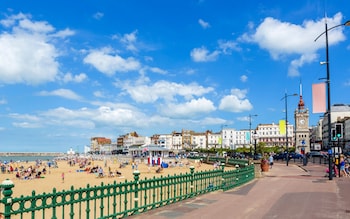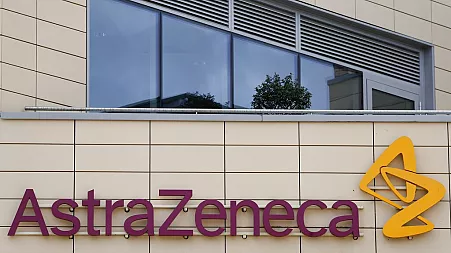Inflation fell less sharply than expected in April in a blow to hopes of an early interest rate cut by the Bank of England.
Prices rose by 2.3pc in the year to April, according to the Office for National Statistics (ONS).
This is down from 3.2pc in March, although it was slightly stronger than the 2.1pc rate predicted by analysts and the Bank of England.
The fall was driven by a drop in household energy bills. Typical dual fuel energy bills fell by 12pc on April 1 to £1,690 a year, knocking around 0.4 percentage points alone off the headline rate.
The pound rose by 0.3pc against the dollar after the figures were released, but investors now only expect one interest rate cut this year, down from two previously.
Statisticians also noted that goods prices fell for the first time since February 2021, down 0.8pc compared with a year ago.
Grant Fitzner, chief economist at the ONS, noted that food price inflation is also easing. Prices in the supermarkets rose by 2.9pc in the year to April, which is down from a peak of 20pc just over a year ago.
However, Mr Fitzner said the period of recent price rises had been painful for many households. He told the BBC: “Over the past two years...food prices are up by almost a quarter. So people are still feeling that.”
Mr Fitzner said there were “more positive elements of the economic story”, adding: “While inflation has been falling quite fast in recent months, wages have held up at around 6pc.”
However, there remain signs that price pressures in some areas of the economy remain stubborn.
Services inflation, which is being watched closely by Threadneedle Street, eased to 5.9pc in April, from 6pc in March.
Core inflation, which strips out more volatile food and energy prices, stood at 3.9pc in April, down from 4.2pc in the year to March
The Bank expects inflation to rise slightly in the second half of this year to around 2.6pc, before falling sustainably to target at the start of 2026.
Inflation peaked at 11.1pc in October 2022, but falling energy prices have helped drag the rate of the increases in living costs back towards more normal levels.
Responding to the latest inflation data, Rachel Reeves MP, the shadow chancellor, said now was “not the time for Conservative ministers to be popping champagne corks and taking a victory lap.”
She added: “After 14 years of Conservative chaos families are worse off. Prices in the shops have soared, mortgage bills have risen and taxes are at a seventy year high.”
A Treasury spokesman said: “We rightly protected millions of jobs during Covid and paid half of people’s energy bills after Putin’s invasion of Ukraine sent bills skyrocketing – but it wouldn’t be fair to leave future generations to pick up the tab.
“That’s why we must stick to the plan to get debt falling. The economy is turning a corner, with strong growth this quarter and inflation close to target, allowing us to cut taxes for the average worker by £900 a year.”
Disclaimer: The copyright of this article belongs to the original author. Reposting this article is solely for the purpose of information dissemination and does not constitute any investment advice. If there is any infringement, please contact us immediately. We will make corrections or deletions as necessary. Thank you.



